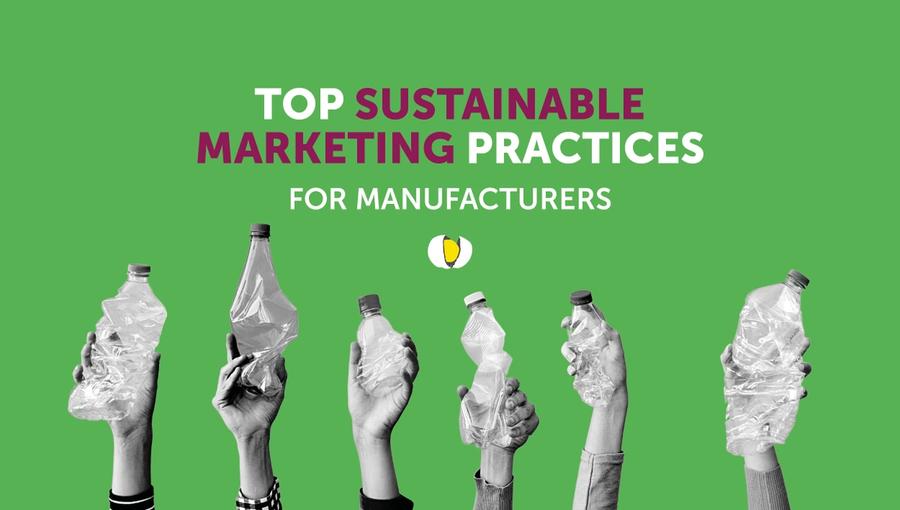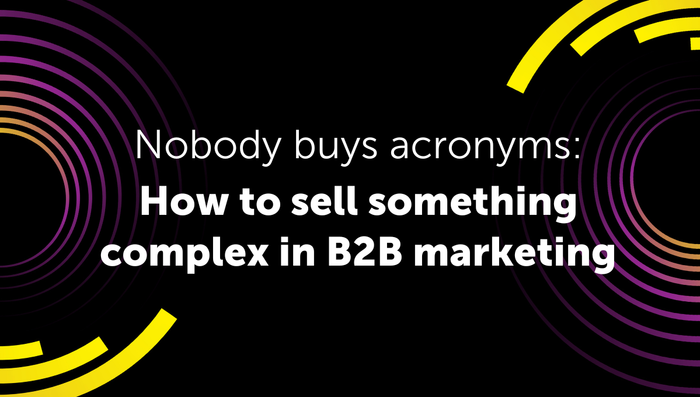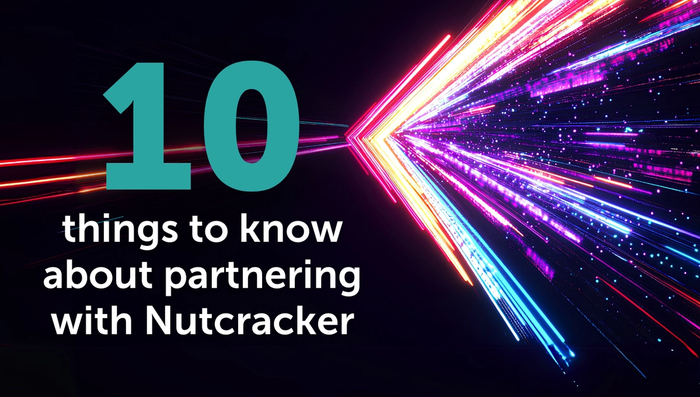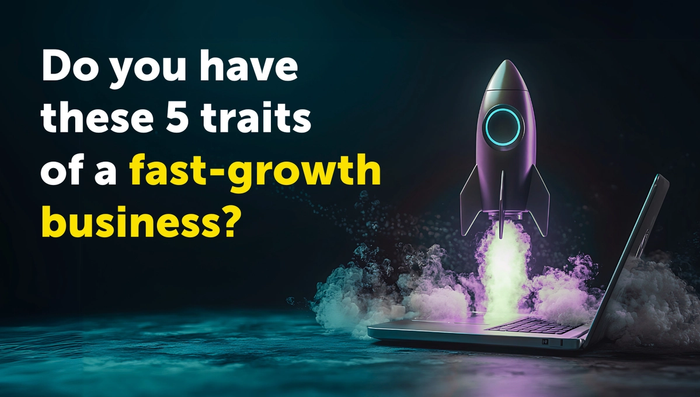Marketing
Top sustainable marketing practices for manufacturers
Sustainability is now a part of people’s decision-making process – if you aren’t showing that you are doing it, you are actively stopping distributors, retailers and consumers from buying products from your company.
Deloitte says that 61% of UK consumers have cut back on single-use plastics, while 34% choose brands that have environmentally sustainable practices/values. Gen Z ranks ethical business/manufacturing as a top factor when purchasing, and many B2B/B2C manufacturers (such as Philips) are working to reduce waste, conserve energy and use eco-friendly packaging.
Yet according to this report, many manufacturers are guilty of ‘green blushing’: not communicating their sustainability accomplishments, assuming audiences don’t care or failing to go beyond a bland corporate statement (‘We care about the environment’. Well, doesn’t everybody)?
So how can manufacturers raise awareness of their sustainable practices while boosting customer loyalty? The answer is sustainable marketing.
What is sustainable marketing?
Sustainable marketing is the promotion of environmental and socially responsible products, practices and brand values. A number of B2B and B2C brands – with frontrunners including IKEA, Patagonia and Salesforce – are using sustainable marketing tactics to show that they are aligning themselves with their customers’ expectations
A high-profile example is Lego, which has an entire section dedicated to sustainability on its website. It’s all there, from the company’s pledge to create all LEGO packaging from 2025 from renewable or recycled materials, to the fact its energy consumption is 100% balanced by renewable energy.
Not only do initiatives like this do some good and give business leaders a warm, fuzzy feeling inside – they also raise the company’s profile and lend credence to their claims that they care about the environment far more than a half-arsed social media post about COP26.
Why is sustainable marketing important?
When tied to the right message, sustainable marketing can get more value out of your existing solutions, gain new customers and ultimately boost your sales.
But that’s only if businesses don’t just see sustainability as being another fad, or jumping on a bandwagon. In order to see the long-term benefits of sustainability marketing, businesses need to fold it into an evolving narrative that highlights the impact manufacturer’s sustainability initiatives are having now, and the impact they will have in the future.
So now you know what sustainable marketing is and why you need it. So what do you need to consider to do it properly?
Firstly…is your supply chain sustainable?
Before you get started with sustainable marketing, you need to have evidence that your company is riding the green wave, or else you could be guilty of ‘greenwashing’ (actively misleading customers about the environmental impact of your products in a bid to get sales).
A classic example is when Volkswagen admitted that it had fitted its cars with software that covered up the true amount of emissions its cars were producing while they were being tested. It turned out the cars were emitting nitrogen oxide pollutants 40 times the legal limit. And here’s the kicker - they were running an environmental campaign at the time.
From distributors to haulage companies, unethical or harmful practices along the supply chain can hurt your company by association. But by the same token, if one of your partners is doing something to make a difference, you need to be talking about it – on social media, in emails – however you can get the message across.
What is your environmental message?
Slapping ‘we care about the planet’ or ‘we support animal welfare’ on your landing page is a nice sentiment. But it’s not going to convince anybody unless you back it up.
Instead, think about how your business supports sustainable and environmentally friendly outcomes. How can you show you are in line with not just regulations, but what hyper-aware consumers now demand from companies like yours when it comes to eco-friendly practices.
If you are a bike manufacturer, your message could be all about the CO2 emissions saved from a greener method of transport, for example. If you are a baby wipe manufacturer, it could be highlighting on your packaging that the wipes are biodegradable, thereby saving hundreds of thousands of tonnes of plastic from being sent to landfill every year.
Use storytelling to convey your message
It’s one thing to tell people that you have used 25% less packaging in your product – but what is the actual impact of this? The businesses with the best sustainable marketing are the ones that tell a story.
Take Belu, a leading ethical drink business which together with charity WaterAid has invested £5 million in life-changing work that has changed the lives of more than 330,000 people. It’s actively visited countries affected by water poverty to listen to stories of those affected and how money contributed is making a difference.
The result? A powerful message that raises awareness and proves to the customer that they are dealing with a truly ethical brand. It also raises another key point about sustainable marketing: By forming partnerships with authorities on environmental/sustainability issues, you’ll lend even more credence to your message and show that you are walking the walk as well as talking the talk.
Sustainable marketing will grow your business
In a Make UK survey, half of manufacturers said they were taking steps towards greater energy efficiency. But when it comes to marketing, manufacturers need to make sure the talk matches the walk.
If you are supporting sustainability and ethical practices in your supply chain, you need to shout about it. Otherwise, the rapidly increasing number of ethical decision makers will buy their products elsewhere.
Want to find out how you can show off your eco-friendly credentials? Nutcracker will help you craft campaigns that bring sustainable practices to the fore and create messages that resonate with your target audience. Download our ultimate guide to marketing for manufacturers, or book a consultation today.
Share this:





